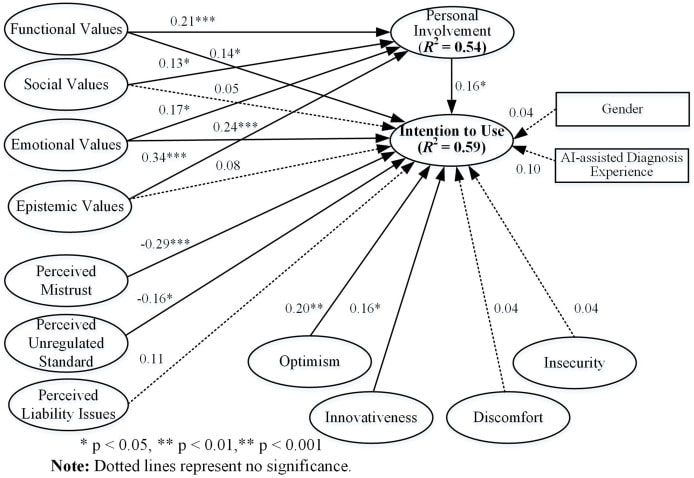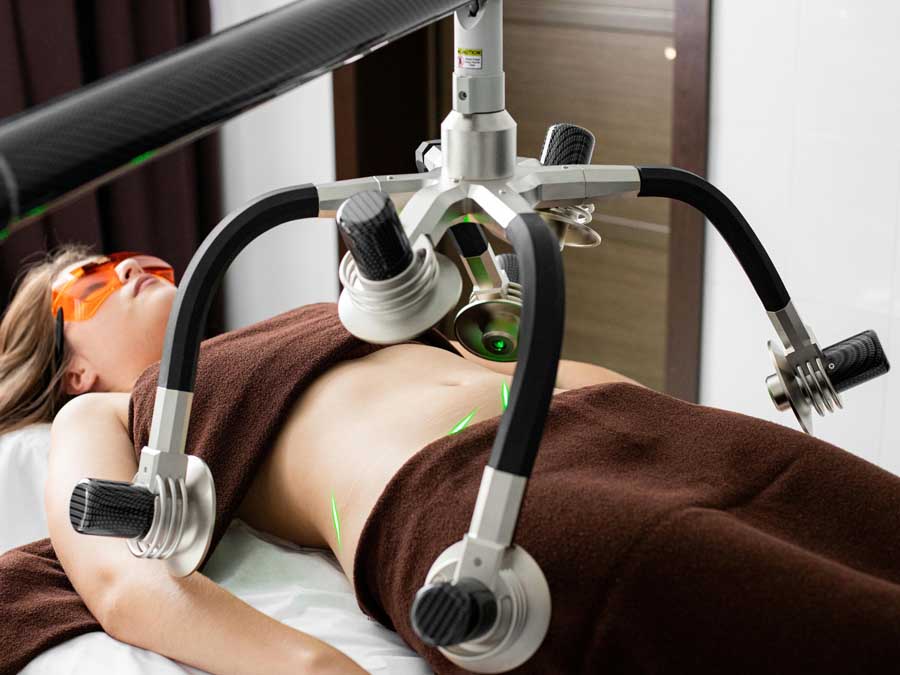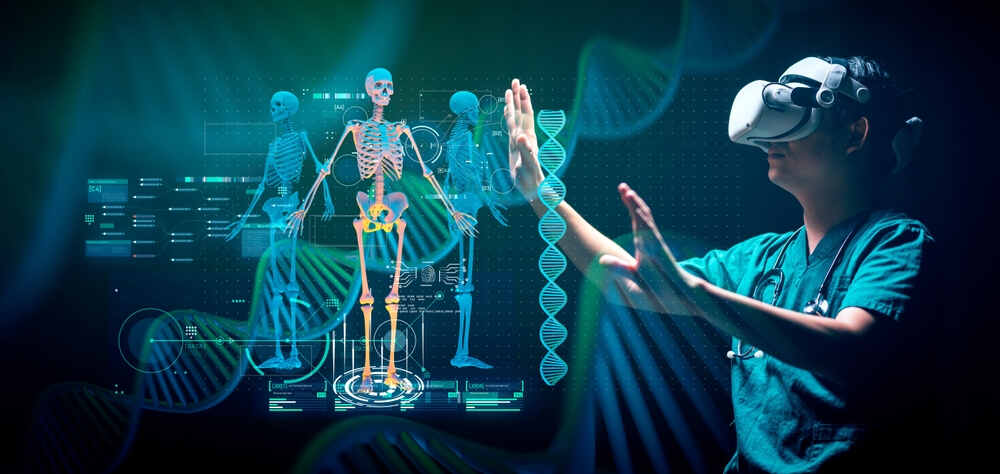“Artificial Intelligence (AI) is revolutionizing the healthcare industry in unprecedented ways. From diagnosing diseases with pinpoint accuracy to personalizing treatment plans, AI is transforming how we approach patient care. With its ability to analyze vast amounts of data, identify patterns, and learn from experiences, AI is becoming an indispensable tool for healthcare professionals. As we embark on this journey, one question remains: what does the future of healthcare look like with AI by our side? Let’s dive in and explore the exciting possibilities.” Artificial Intelligence Healthcare Companies
Applications of AI in Healthcare: Transforming Patient Care
Artificial Intelligence (AI) is no longer a futuristic concept in healthcare. It’s a reality that’s transforming patient care in remarkable ways. From diagnosing diseases to personalizing treatment plans, AI is revolutionizing the way healthcare professionals work. Let’s explore some real-life examples of AI’s practical uses in healthcare. Artificial Intelligence Healthcare Companies
Diagnosing Diseases with Accuracy
Meet Emma, a 35-year-old mother of two who was diagnosed with breast cancer. Thanks to AI-powered mammography, her cancer was detected at an early stage, giving her a fighting chance. AI algorithms analyzed the mammography images, detecting subtle patterns that may have gone unnoticed by human eyes. Artificial Intelligence Healthcare Companies
Virtual Nursing Assistants
Imagine having a personal nurse assistant who monitors your health 24/7. AI-powered chatbots like MedWhat and Ada Health are doing just that. These virtual assistants use natural language processing to understand patients’ concerns, provide personalized advice, and even schedule appointments. Artificial Intelligence Healthcare Companies
Personalized Medicine
AI is helping doctors tailor treatment plans to individual patients. For instance, genetic testing combined with AI analysis helps identify the most effective cancer treatment for each patient. This personalized approach has shown remarkable results, improving patient outcomes and reducing side effects. Artificial Intelligence Healthcare Companies
Streamlining Clinical Workflows
AI is also automating administrative tasks, freeing up healthcare professionals to focus on what matters most – patient care. For example, AI-powered systems like Zebra Medical Vision analyze medical images, prioritize urgent cases, and even detect abnormalities. Artificial Intelligence Healthcare Companies
Top AI Healthcare Companies: Pioneering the Future of Patient Care
The AI healthcare landscape is teeming with innovative companies that are transforming patient care. From startups to established players, these companies are leveraging AI to improve diagnosis accuracy, streamline clinical workflows, and enhance patient engagement. Let’s take a look at some of the leading companies in the AI healthcare space. Artificial Intelligence Healthcare Companies
1. IBM Watson Health: Revolutionizing Cancer Care
IBM Watson Health is a pioneer in AI healthcare. Its cognitive computing platform, IBM Watson, is helping doctors diagnose and treat cancer more effectively. For instance, Watson for Oncology provides personalized treatment recommendations based on individual patient profiles. Artificial Intelligence Healthcare Companies
2. Google’s DeepMind Health: AI for Eye Care
Google’s DeepMind Health is using AI to detect eye diseases like diabetic retinopathy and age-related macular degeneration. Its AI algorithm can analyze retinal scans and detect diseases with unprecedented accuracy, enabling early intervention and saving vision. Artificial Intelligence Healthcare Companies
3. Microsoft Health Bot: Empowering Patient Engagement
Microsoft’s Health Bot is an AI-powered chatbot that enables patients to take control of their health. It helps patients schedule appointments, access medical records, and even provides personalized health advice. Artificial Intelligence Healthcare Companies
4. Aidence: AI for Medical Imaging
Aidence is an AI startup that’s revolutionizing medical imaging analysis. Its AI algorithm can detect abnormalities in X-rays, CT scans, and MRIs, enabling doctors to make faster and more accurate diagnoses. Artificial Intelligence Healthcare Companies
5. Medtronic: AI for Chronic Disease Management
Medtronic is a leader in medical device technology. Its AI-powered (link unavailable) system helps patients with diabetes manage their condition more effectively. The system provides personalized insights and alerts to enable proactive care. Artificial Intelligence Healthcare Companies
Medical Imaging Analysis: How AI is Revolutionizing Diagnosis

Medical imaging has revolutionized the field of diagnostics, allowing doctors to visualize the inner workings of the human body. However, interpreting these images can be a time-consuming and challenging task. That’s where Artificial Intelligence (AI) comes in. AI algorithms can analyze medical images with unprecedented accuracy, helping doctors diagnose diseases more effectively. Artificial Intelligence Healthcare Companies
The Power of AI in Medical Imaging
Meet Sarah, a 28-year-old who was involved in a car accident. She was rushed to the hospital, where doctors ordered a CT scan to check for internal injuries. AI-powered algorithms analyzed the images, detecting a subtle fracture in her spine that may have gone unnoticed by human eyes. Artificial Intelligence Healthcare Companies
AI-Assisted X-ray Analysis
AI can analyze X-ray images to detect abnormalities such as tumors, fractures, and lung diseases. For instance, AI-powered systems like DeepMind’s AI can detect breast cancer from mammography images with a high degree of accuracy. Artificial Intelligence Healthcare Companies
MRI Analysis: Uncovering Hidden Conditions
AI algorithms can also analyze MRI scans to detect conditions like multiple sclerosis, Parkinson’s disease, and even mental health disorders. For example, researchers at the University of California, Los Angeles (UCLA), used AI to analyze MRI scans and identify biomarkers for depression. Artificial Intelligence Healthcare Companies
The Future of Medical Imaging
AI is not only improving diagnosis accuracy but also reducing the time it takes to analyze medical images. This means doctors can focus on what matters most – treating patients. As AI continues to evolve, we can expect even more groundbreaking applications in medical imaging. Artificial Intelligence Healthcare Companies
Some statistics to illustrate the impact of AI in medical imaging:
- AI can analyze medical images up to 10 times faster than human radiologists.
- AI-assisted diagnosis can reduce errors by up to 30%.
- AI can detect abnormalities in medical images with an accuracy rate of up to 97%.
AI-Assisted Diagnostics: Empowering Doctors to Diagnose with Confidence

Diagnosing diseases is a complex and challenging task, even for experienced doctors. With the help of Artificial Intelligence (AI), doctors can now diagnose diseases more accurately and confidently. AI algorithms can analyze vast amounts of medical data, identify patterns, and provide insights that may have gone unnoticed by human eyes.
The Story of Emma: A Life-Saving Diagnosis
Meet Emma, a 7-year-old girl who was diagnosed with a rare genetic disorder called Kawasaki disease. Thanks to AI-assisted diagnostics, her doctor was able to identify the disease early on, and Emma received life-saving treatment. The AI algorithm analyzed Emma’s symptoms, medical history, and genetic data to provide an accurate diagnosis. Artificial Intelligence Healthcare Companies
AI-Assisted Diagnosis in Action
AI is being used to diagnose a wide range of diseases, including:
- Cancer: AI algorithms can analyze medical images, such as mammograms and CT scans, to detect cancerous tumors and lesions.
- Diabetes: AI-powered systems can analyze blood sugar levels, medical history, and lifestyle data to predict the risk of developing diabetes.
- Cardiovascular Disease: AI algorithms can analyze ECG data, medical history, and lifestyle data to predict the risk of heart attacks and strokes.
The Benefits of AI-Assisted Diagnostics
AI-assisted diagnostics offers several benefits, including:
- Improved Accuracy: AI algorithms can analyze vast amounts of medical data, reducing the risk of human error.
- Enhanced Patient Care: AI-assisted diagnostics enables doctors to provide personalized treatment plans and improve patient outcomes.
- Increased Efficiency: AI algorithms can analyze medical data quickly, reducing the time it takes to diagnose diseases.
The Future of Diagnostics
As AI continues to evolve, we can expect even more exciting innovations in diagnostics. With the help of AI, doctors will be able to diagnose diseases more accurately, quickly, and confidently. This means better patient outcomes, improved quality of care, and a healthier future for all.
Some statistics to illustrate the impact of AI-assisted diagnostics:
- AI-assisted diagnostics can improve diagnosis accuracy by up to 30%.
- AI algorithms can analyze medical data up to 10 times faster than human doctors.
- AI-assisted diagnostics can reduce the risk of misdiagnosis by up to 50%.
Precision Medicine: How AI is Tailoring Treatment Plans to Individual Patients

Artificial Intelligence (AI) is revolutionizing healthcare by enabling personalized treatment plans tailored to individual patients’ needs. AI algorithms analyze vast amounts of medical data, including genetic profiles, medical histories, and lifestyle factors, to create targeted treatment plans. This approach, known as precision medicine, is transforming the way healthcare professionals diagnose and treat diseases.
The Story of Michael: A Personalized Treatment Plan
Meet Michael, a 45-year-old patient diagnosed with lung cancer. AI analysis of his genetic profile and medical history revealed a unique genetic mutation that made him an ideal candidate for targeted therapy. Thanks to AI, Michael received a personalized treatment plan that increased his chances of remission. Artificial Intelligence Healthcare Companies
AI-Powered Precision Medicine
AI is being used to develop personalized treatment plans in various ways:
- Genomic Analysis: AI algorithms analyze genetic data to identify potential genetic mutations and tailor treatment plans accordingly.
- Predictive Analytics: AI-powered predictive models forecast patient responses to different treatments, enabling healthcare professionals to make informed decisions.
- Machine Learning: AI-driven machine learning algorithms identify patterns in medical data, enabling personalized treatment recommendations.
Real-Life Examples of AI-Driven Precision Medicine
- IBM Watson for Oncology: An AI platform that provides personalized cancer treatment recommendations based on genetic analysis and medical history.
- Foundation Medicine: A company that uses AI-powered genomic analysis to develop personalized cancer treatment plans.
- Google’s DeepMind: An AI platform that uses machine learning to analyze medical images and develop personalized treatment plans.
The Benefits of AI-Driven Precision Medicine
AI-driven precision medicine offers several benefits, including:
- Improved Treatment Outcomes: Personalized treatment plans increase the likelihood of successful treatment.
- Enhanced Patient Experience: Patients receive tailored care that addresses their unique needs.Increased Efficiency: AI streamlines the treatment planning process, reducing administrative burdens.
The Future of Precision Medicine
As AI continues to evolve, we can expect even more innovative applications of precision medicine. With AI, healthcare professionals will be able to deliver truly personalized care, leading to better patient outcomes and improved quality of life. Artificial Intelligence Healthcare Companies
Streamlining Clinical Trials: AI’s Role in Accelerating Medical Breakthroughs

Clinical trials are a crucial step in bringing new treatments to patients, but they can be slow, costly, and inefficient. Artificial Intelligence (AI) is transforming the clinical trial process, streamlining research and improving efficiency. Let’s explore how AI is making a difference.
The Challenge: Slow and Inefficient Clinical Trials
Clinical trials can take years to complete, with many facing delays, inefficiencies, and high costs. This slows down the development of new treatments and delays their availability to patients. Artificial Intelligence Healthcare Companies
The Solution: AI-Powered Clinical Trials
AI is being used to streamline clinical trials in various ways:
- Patient Recruitment: AI algorithms identify potential participants based on genetic profiles, medical histories, and lifestyle factors.
- Trial Design Optimization: AI-powered predictive models optimize trial design, reducing the number of participants needed and accelerating research.
- Data Analysis: AI-driven machine learning algorithms analyze vast amounts of data, providing insights that inform future research.
Real-Life Examples: AI in Action
- AI-powered clinical trial platform: Deep 6 AI’s platform uses AI to optimize clinical trial design and patient recruitment.
- AI-driven patient matching: Antidote Technologies’ platform uses AI to match patients with relevant clinical trials.
- AI-accelerated research: Bayer’s AI-powered clinical trials have reduced research timelines by up to 50%.
The Benefits: Faster, More Efficient Research
AI-driven clinical trials offer several benefits, including:
- Faster Research: AI accelerates the research process, getting treatments to patients faster.
- Improved Efficiency: AI streamlines trial design, data analysis, and patient recruitment.
- Enhanced Patient Experience: AI-powered clinical trials provide patients with more personalized and effective treatments.
The Future: Accelerating Medical Breakthroughs
As AI continues to evolve, we can expect even more innovative applications in clinical trials. With AI, researchers will be able to develop more effective treatments, faster and more efficiently, leading to better patient outcomes and improved quality of life. Artificial Intelligence Healthcare Companies
Patient Engagement 2.0: How AI is Revolutionizing Healthcare Experience
Patient engagement is a critical aspect of healthcare, and Artificial Intelligence (AI) is transforming the way patients interact with healthcare providers. AI-powered solutions are improving patient engagement, experience, and outcomes. Let’s explore some real-life examples of how AI is making a difference. Artificial Intelligence Healthcare Companies
The Story of Rachel: A Personalized Healthcare Experience
Meet Rachel, a 35-year-old mother of two who was diagnosed with diabetes. With the help of an AI-powered chatbot, Rachel received personalized diet plans, medication reminders, and lifestyle advice. The chatbot even sent her motivational messages to help her stay on track. Rachel’s experience with the chatbot made her feel more in control of her health.
AI-Powered Patient Engagement Platforms
AI is being used to develop patient engagement platforms that offer:
- Personalized Health Plans: AI algorithms create tailored plans based on individual patient needs and preferences.
- Virtual Health Assistants: AI-powered chatbots provide patients with real-time support and guidance.
- Patient Education: AI-driven platforms offer interactive educational content to empower patients.
Real-Life Examples of AI-Driven Patient Engagement
- MedWhat: An AI-powered chatbot that helps patients manage chronic conditions.
- Ada Health: An AI-driven platform that provides personalized health advice and support.
- ** PatientsLikeMe:** An AI-powered community platform that connects patients with similar conditions.
The Benefits of AI-Driven Patient Engagement
AI-driven patient engagement offers several benefits, including:
- Improved Health Outcomes: AI-powered platforms help patients take a more active role in their healthcare.
- Enhanced Patient Experience: AI-driven solutions provide personalized support and guidance.
- Increased Efficiency: AI algorithms streamline patient engagement, reducing administrative burdens.
The Future of Patient Engagement
As AI continues to evolve, we can expect even more innovative patient engagement solutions. With AI, patients will have more control over their healthcare, and healthcare providers will be able to deliver more personalized, effective care. Artificial Intelligence Healthcare Companies
The Future of AI in Healthcare: Promising Developments and Challenges

As AI continues to transform the healthcare industry, we can expect even more innovative applications in the future. However, with these developments come challenges that must be addressed to ensure the responsible and effective integration of AI in healthcare. Artificial Intelligence Healthcare Companies
Promising Developments:
- Personalized Medicine: AI will continue to play a crucial role in personalized medicine, enabling healthcare professionals to tailor treatment plans to individual patients’ needs.
- Disease Diagnosis: AI-powered algorithms will become even more accurate in diagnosing diseases, potentially leading to earlier detection and treatment.
- Robot-Assisted Surgery: AI-powered robots will become more prevalent in operating rooms, enhancing the precision and effectiveness of surgical procedures.
- Virtual Nursing Assistants: AI-powered virtual nursing assistants will become more common, providing patients with personalized support and care.
Challenges:
- Data Privacy: The increasing use of AI in healthcare raises concerns about data privacy and security.
- Bias and Discrimination: AI algorithms can perpetuate biases and discrimination if they are trained on biased data sets.
- Regulation: The development of regulations and standards for AI in healthcare is crucial to ensure safety and effectiveness.
- Workforce Displacement: The automation of certain tasks may lead to workforce displacement, requiring healthcare professionals to adapt to new roles and responsibilities.
Real-Life Examples:
- Google’s AI-Powered Breast Cancer Detection: Google’s AI algorithm has shown promise in detecting breast cancer from mammography images, potentially leading to earlier detection and treatment.
- IBM’s Watson for Oncology: IBM’s AI platform has been used to develop personalized cancer treatment plans, improving patient outcomes.
- Medtronic’s AI-Powered Insulin Pumps: Medtronic’s AI-powered insulin pumps have improved glucose management for patients with diabetes.
Human Touch:
As AI continues to evolve in healthcare, it’s essential to remember the human element. AI should be designed to augment and support healthcare professionals, not replace them. By prioritizing transparency, accountability, and patient-centered design, we can ensure that AI is used responsibly and effectively in healthcare. Artificial Intelligence Healthcare Companies

